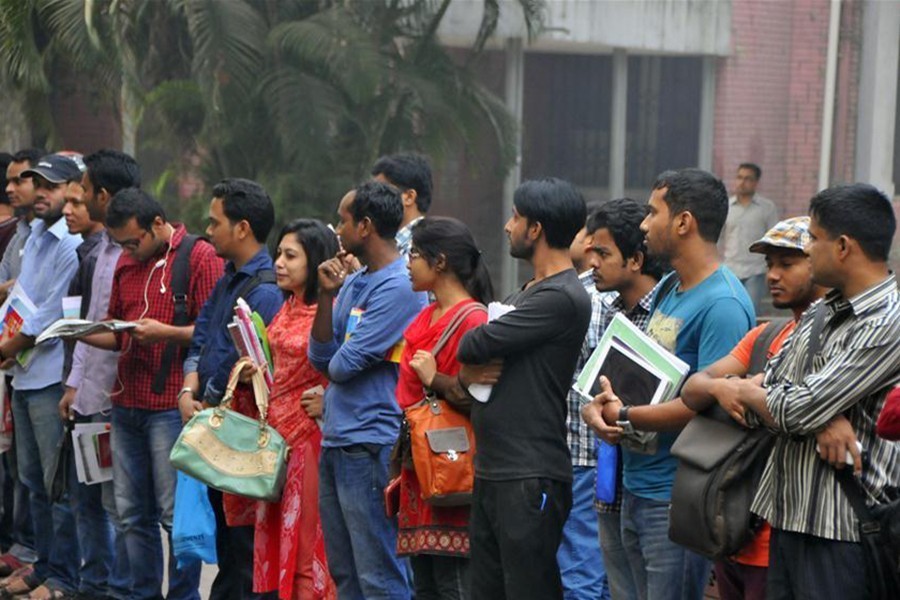As multitudes of fresh youths join the country's labour market every year, they remain mostly unemployed or underemployed. Only a small portion of them ---14.9 per cent --- with the requisite skills, reportedly can find jobs in the formal sector. The rest 85.1 per cent remain without work or have to accept the drudgery of being engaged in the informal sector. Obviously, this reflects negatively on the productivity of the country's employable youths. According to an estimate, every year some 2.2 million able-bodied youths join the country's workforce. With few jobs available to them, they soon become a burden to their families and society.
Against this backdrop, it is reassuring to learn that the government has formulated an apprenticeship guideline to develop a workforce that is equipped with various skills so that they may become productive and thus can meet the demands of the local as well as the overseas job markets. The move, albeit a belated one, is obviously the first step towards providing a lifeline to the growing army of the unemployed in the country. It is indeed a cruel irony that when only a small fraction of the country's unemployed youths can find employment in local industries, the remaining better-paid positions are grabbed by foreign workers. On this score, a report by the Transparency International, Bangladesh (TI, B) published in February, 2020 says that a quarter of a million foreign workers are employed both legally and illegally in Bangladesh and they remit to their home countries foreign currency equivalent to Tk 2.64 trillion every year. Also, as a consequence, the government is losing revenue worth Tk120 billion annually, the (TI,B) report further adds.
In stark contrast to that a large number of unskilled and low-skilled local youths are in a mad rush to get low-paid overseas jobs. Even worse, many of them end up in foreign lands as victims of trafficking in person. On the other hand, a large portion of whatever our unskilled, semi-skilled and low-paid migrant workers employed overseas are remitting home as foreign currency is being spent to pay the foreigners working in Bangladesh. This is very unfortunate, especially, at a time when the volume of homebound remittance is shrinking due to various factors attributable to a large extent to the volatile foreign currency market.
In this situation, it is imperative that the latent potential of the country's youth workforce is duly tapped through upskilling them in trades that can meet the demands of local and overseas employers. Here, Bangladesh's diplomatic missions abroad have a big role to play by way of supplying current information about jobs in demand in the host countries, especially, those that are suitable for the upskilled local youths. It is worthwhile to note that the task of raising the skills of the local youths is not merely a matter of reducing unemployment in the country. In fact, it is more than that particularly at a time when the economy is in the process of upgrading itself as a middle income one. It is only more so because the world economy at the moment is experiencing a tectonic change in the shape of the so-called fourth industrial revolution (4IR). So, the government would be required to get its act together and transform the country's youths into a highly productive force, who can meet the emerging challenges of the time.


